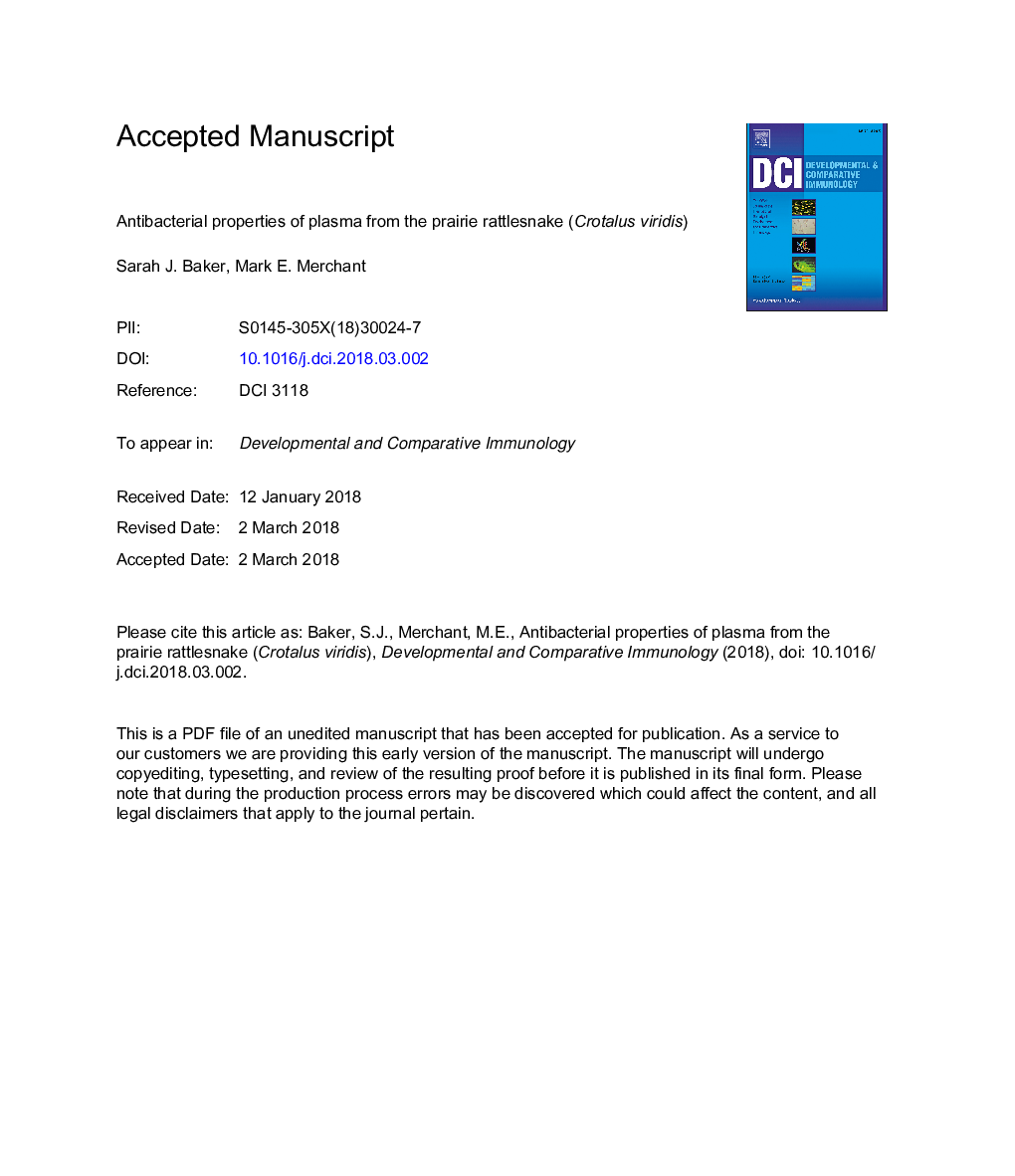| Article ID | Journal | Published Year | Pages | File Type |
|---|---|---|---|---|
| 8497728 | Developmental & Comparative Immunology | 2018 | 26 Pages |
Abstract
The innate immune system functions to quickly respond to pathogens and is likely the primary line of defense for ectothermic vertebrates. Snake populations appear to be in widespread decline globally, but despite the threats from emerging pathogens, very little work has been conducted to characterize their basic immune function. We used a wide-ranging snake species, the Prairie Rattlesnake (Crotalus viridis), to measure effects of snake plasma on the growth of eight bacterial species. Additionally, we quantified bacterial killing ability and kinetics of the immune response. Our results show that Prairie Rattlesnakes have robust innate immune systems, and concentrations of 10% snake plasma inhibit growth of 6 of 8 bacteria tested. Undiluted snake plasma inhibited nearly all bacterial growth. The immune response was fairly rapid, inhibiting 73% of bacterial growth within 20â¯min of exposure. These results are encouraging for conservation of wild populations, as snakes appear to exhibit a strong innate immune response. However, further work needs to be directed toward the evaluation of immune system capabilities in individual populations of conservation concern, and against pathogens known to cause mortality in wild snakes.
Related Topics
Life Sciences
Biochemistry, Genetics and Molecular Biology
Developmental Biology
Authors
Sarah J. Baker, Mark E. Merchant,
